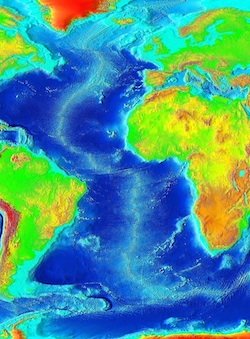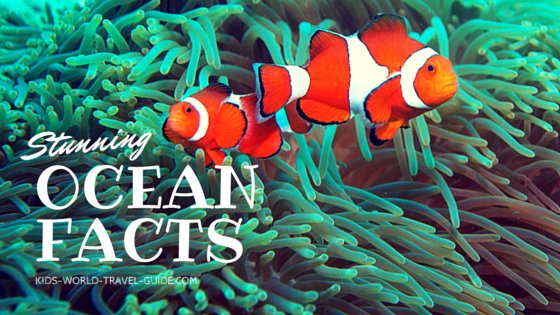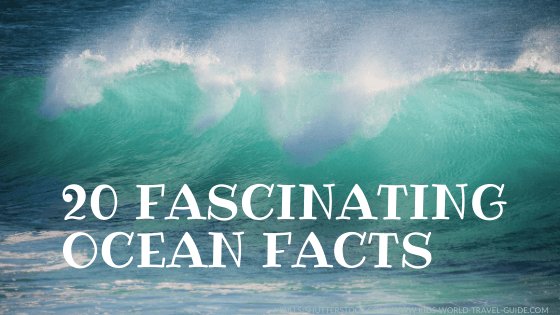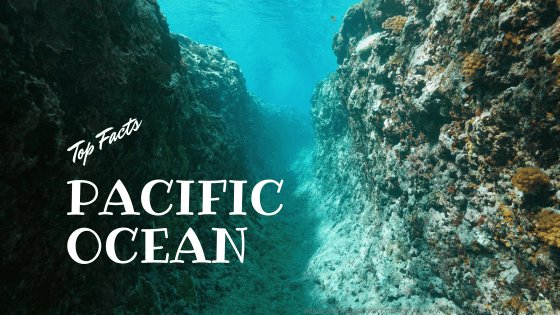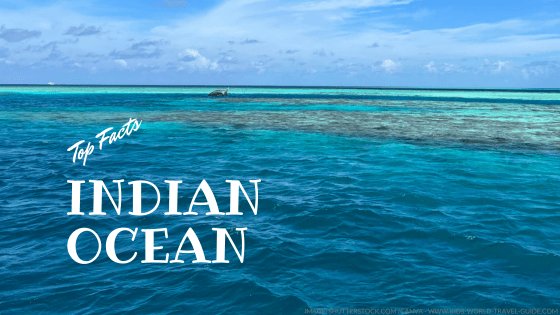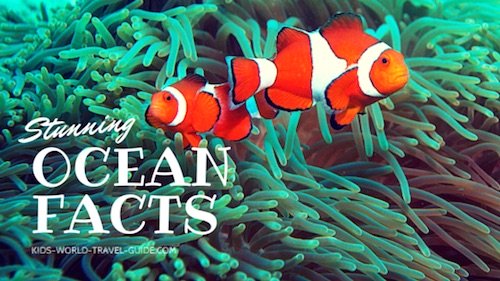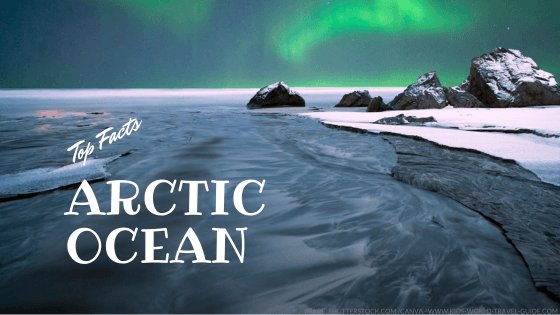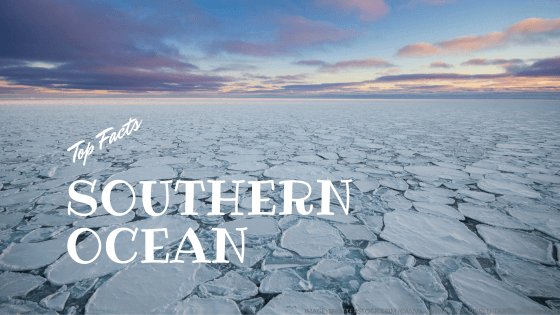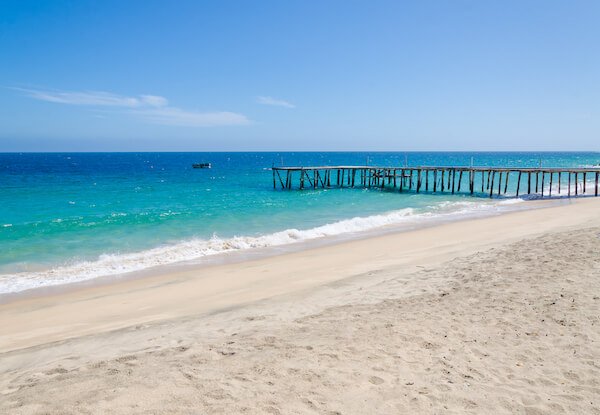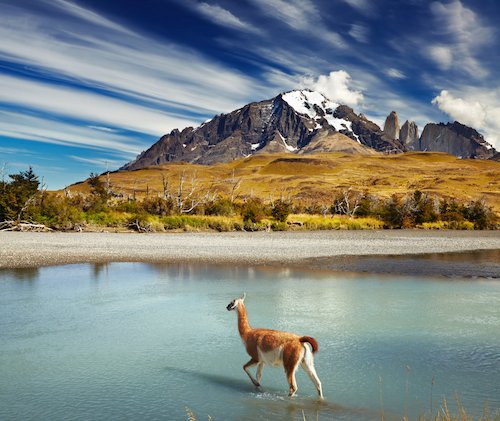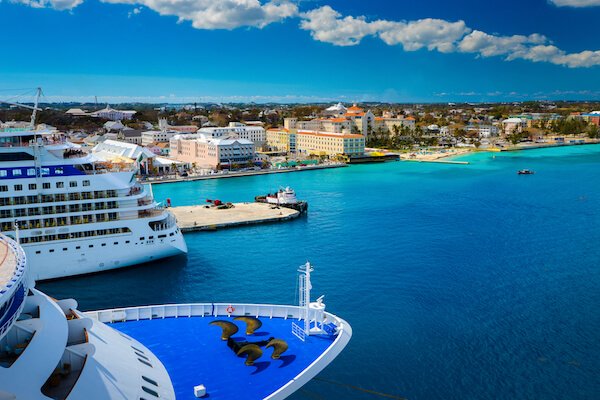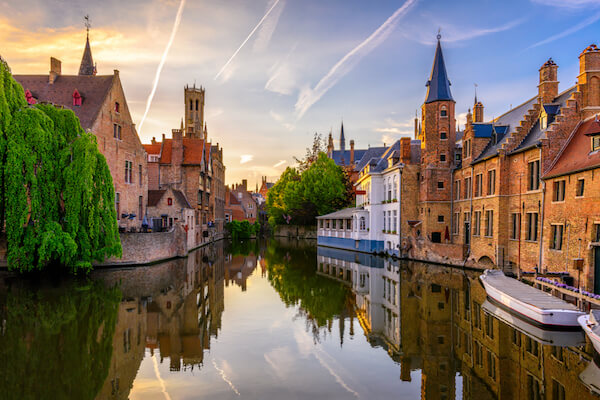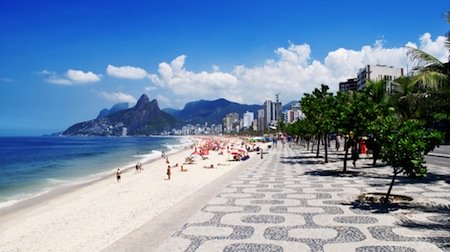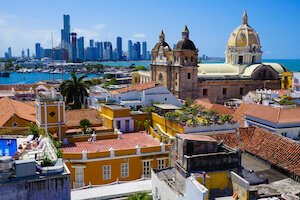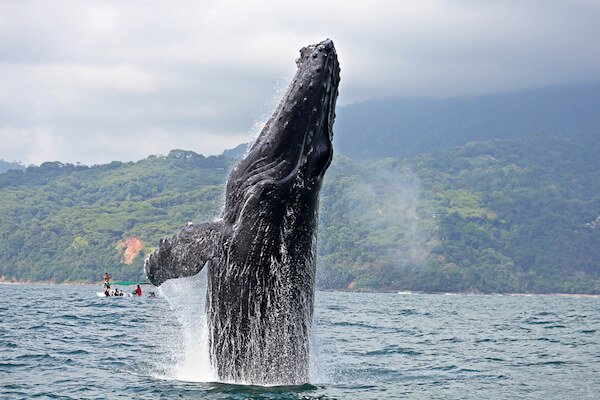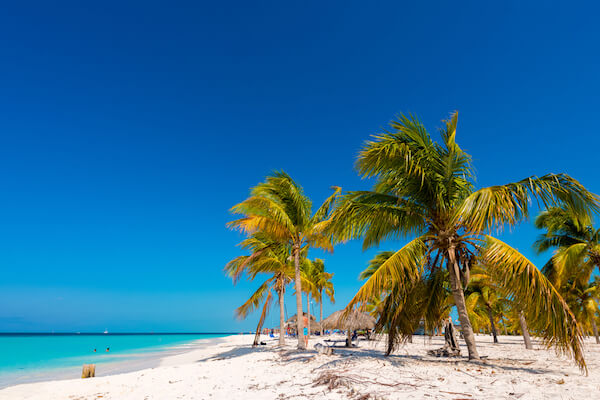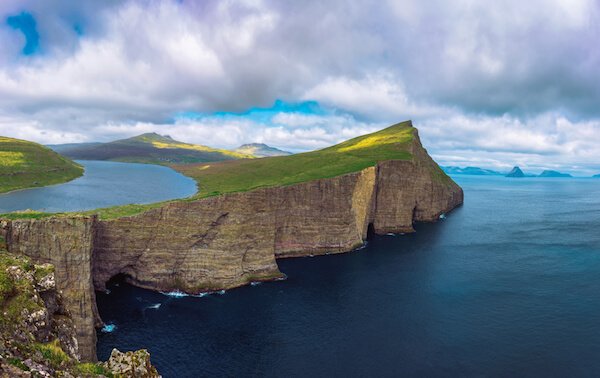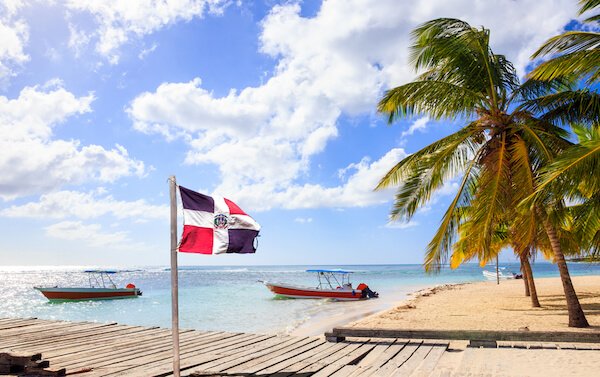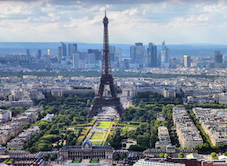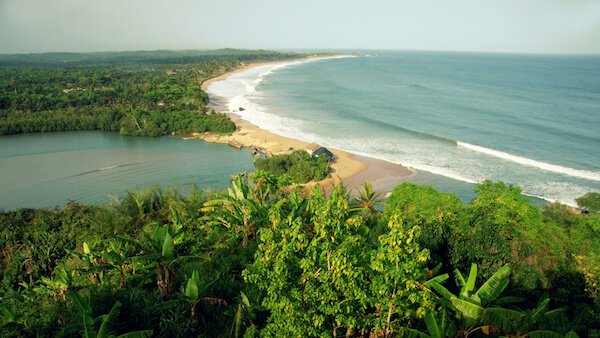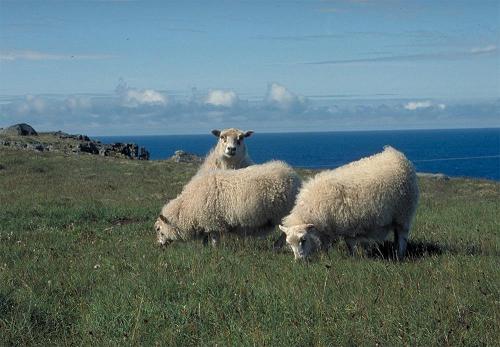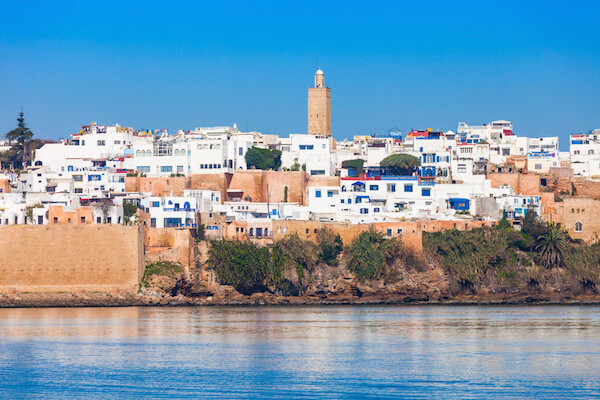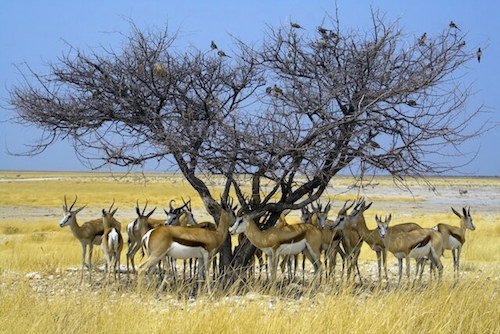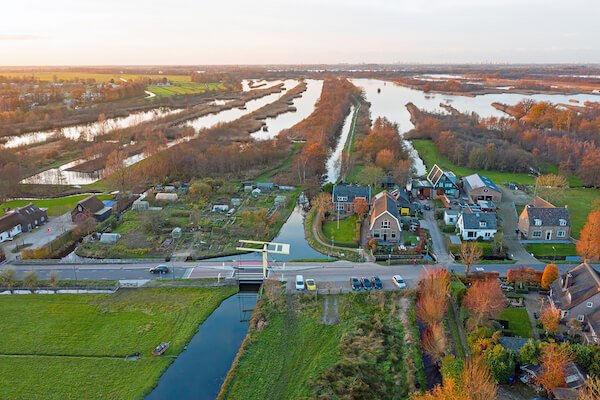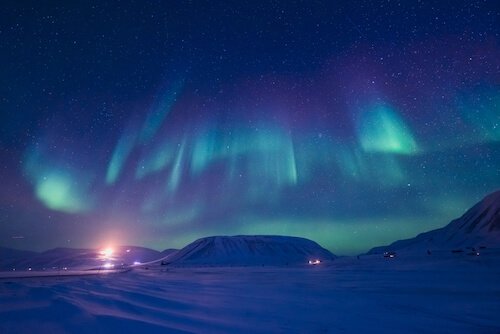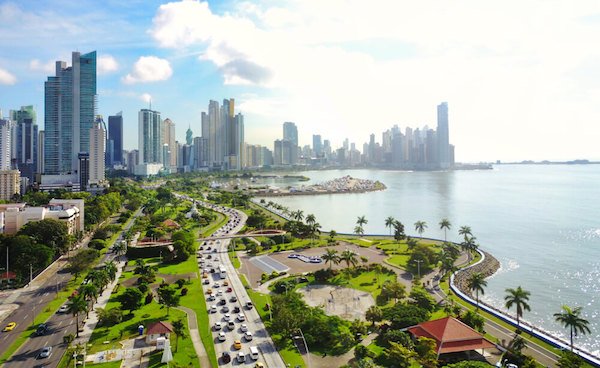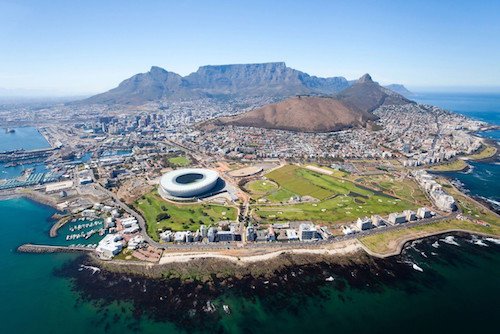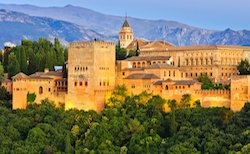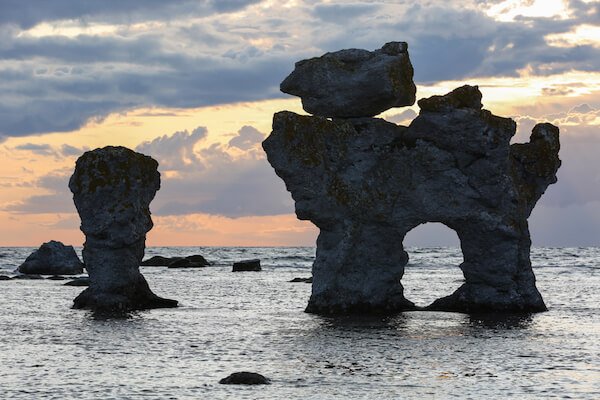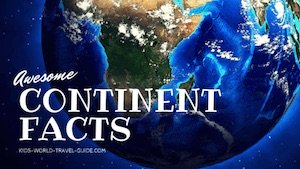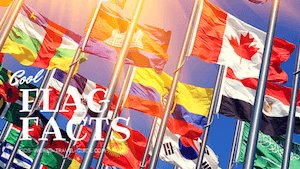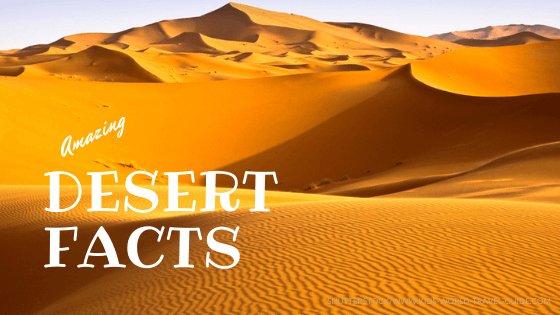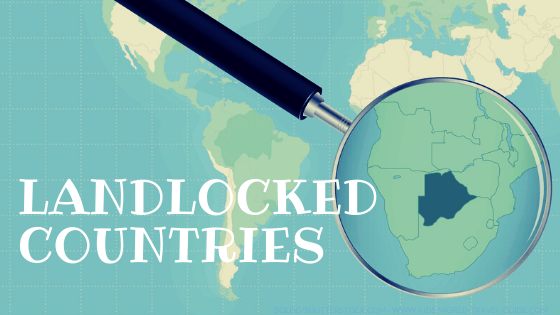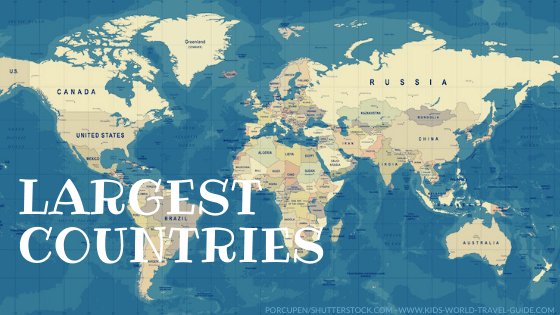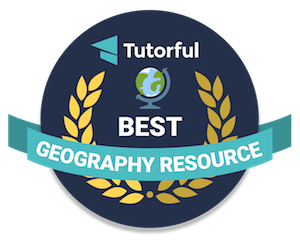Atlantic Ocean Facts for Kids
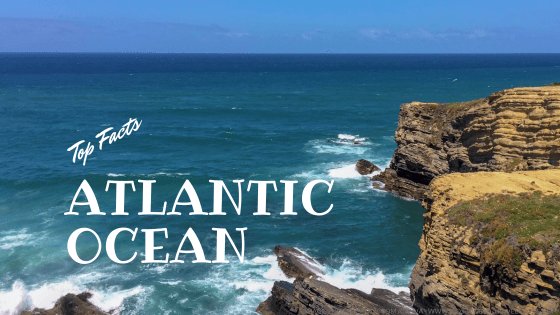
Top Facts about the Atlantic Ocean
Here are our Top 10 Atlantic Ocean Facts for Kids with lots of useful info for school projects, and general knowledge, of course!
What you definitely should know about the Atlantic Ocean:
1. Location: Where is the Atlantic Ocean?
The Atlantic Ocean is located between the Americas to the West of the Atlantic Ocean basin and the continents of Europe and Africa to the East of the ocean basin.
The Equator divides the Atlantic Ocean into the North Atlantic Ocean and the South Atlantic Ocean.
Below you can see a world map showing the Atlantic Ocean:
Simply click the + and - signs on the left of the map and zoom into the map to see more about the bordering countries and to locate some of the islands, cities and ports we mention in the text below.
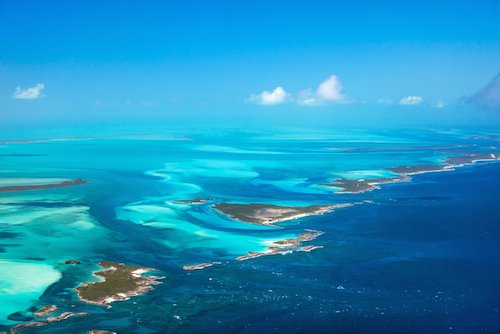 Atlantic Ocean Islands: The Bahamas
Atlantic Ocean Islands: The BahamasThere are many islands in the Atlantic Oceans, amongst them the most well-known Atlantic Ocean island are:
- The Bahamas
- Canary Islands (belonging to Spain)
- Azores (belonging to Portugal)
- Cap Verde Islands
- Greenland, which not only is the largest island in the Atlantic Ocean, but also the largest island of our planet.
Can you find these islands on the map?
2. Name: What does 'atlantic' mean?
The word 'Atlantic' originates from the Greek mythology meaning 'sea of Atlas'.
Atlas was the name of the Greek god of strength. Atlas had fought against the Olympian gods for the control of the heavens. He was punished for this by Zeus and had to stand on the edge of the earth and carry the heavens (celestial spheres) on his shoulders.
3. Size: How big is the Atlantic Ocean?
The Atlantic is the world’s second largest ocean and covers more than 20% of the Earth’s surface. It is the second largest ocean of the five world oceans and is thus smaller than the Pacific Ocean.
In size the Atlantic Ocean is about 6.5 times as large as the land area of the USA.
The coastlines around the Atlantic Ocean add up to about 11,900 km/ 7,400 miles.
|
4. Depth: How deep is the Atlantic Ocean? The greatest depth of the Atlantic Ocean is the Milwaukee Deep in Puerto Rico with 8,605 m/ 28,232 ft. The average depth is about 3,339 m/ 10,955 ft. |
The Mid-Adtlantic Ridge is an underwater (also called submarine) mountain range which extends roughly from Iceland in the north to South Georgia and South Sandwich Island south of Argentina.
The ridge divides the sea into two major basins, which are over 3,000 m/ 9,843 ft in depth. On the satellite image to the left, you can see the vertical (from top to bottom) light blue line in the deep blue sea.
5. Temperature: How warm are the waters of the Atlantic Ocean?
The temperatures of the Atlantic Ocean waters depend on the location and on the ocean's currents. The nearer to the Equator the warmer the water tends to be.
The temperature of 28 degrees Celsius/ 82 degrees Fahrenheit is reached in coastal regions near the equator and the minimum temperatures is around minus 2 degrees Celsius/28 degrees Fahrenheit in the polar regions.
More Atlantic Ocean Facts
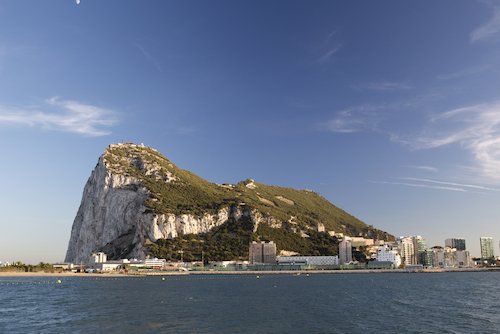 Rock of Gibraltar
Rock of Gibraltar6. Important Waterways: In Europe, the Straits of Gibraltar between Spain and Morocco and the Bosporus in Turkey are two of the most well known waterways in the Atlantic Ocean.
A strategic waterway in the Americas is the Saint Lawrence seaway between Canada and the USA.
7. Atlantic Ocean Facts: Ports
Among the major seaports of the Atlantic Ocean are: in Europe the ports of Hamburg (Germany) and Rotterdam (The Netherlands). Rotterdam is in fact the biggest container port in Europe.
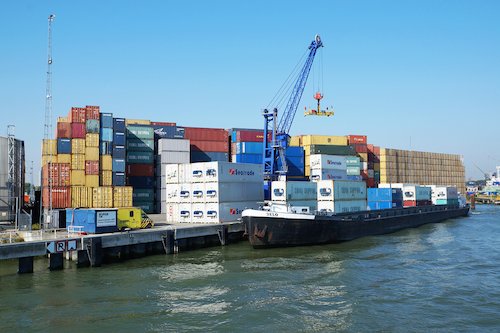 Port of Rotterdam, Netherlands
Port of Rotterdam, NetherlandsIn the Americas, the ports of New York (USA), Buenos Aires (Argentina) and Colon (Panama) are the largest and busiest. Colon is known as the largest port on the Atlantic Ocean in Latin America with over 3 million containers per year! In South America, the ports of Cartagena (Colombia) and Santos (Brazil) are the busiest ports.
In Africa, the largest Atlantic Ocean ports are those of Tangier (Morocco), Lagos (Nigeria) and Cape Town (South Africa).
8. Width: The greatest width of the ocean is between Brazil and Sierra Leone.
The distance between those two coastlines on the South American continent and Africa is 2,848 km or 1770 miles.
9. Atlantic Ocean Facts:
Some important cities are located along the Atlantic Ocean coast. Among them are:
|
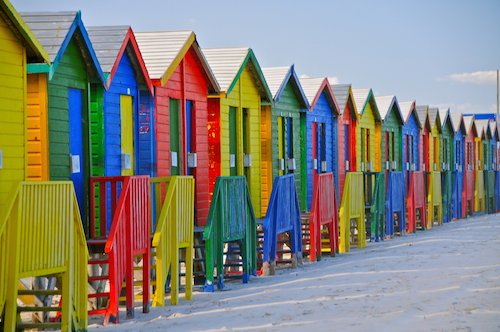 Beach Huts in Cape Town, South Africa Beach Huts in Cape Town, South Africa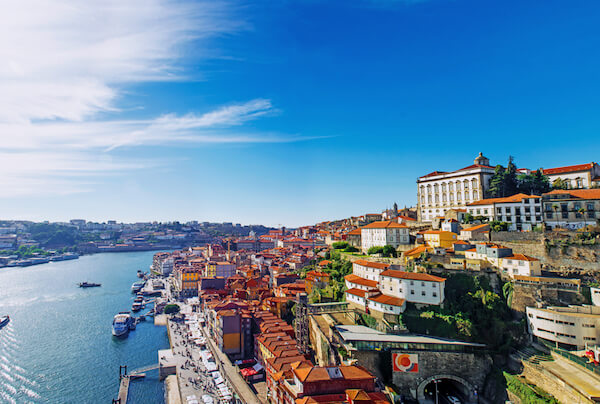 Porto in Portugal Porto in Portugal |
Can you find these Atlantic Ocean cities on a world map?
10. Famous Atlantic explorers
Amongst the most famous explorers of the Atlantic Ocean are Norwegian Roald Amundsen who reached the South Pole in 1911. Irishman Ernest Shackelton undertook three expeditions to the Antarctica from 1901 and Englishman Robert Falcon Scott went on his own Antarctic expeditions from 1901 as well.
Did you know that the Icelander Leif Erikson (970-1020) is remembered as the first 'European' to reach North America more than 500 years before Columbus!
The Icelander is said to have been the first man from Europe to cross the Atlantic Ocean and step onto North American land. He named the eastern coast of Canada 'Vinland', which is believed to be what is now Newfoundland.
Find out more about Iceland's attractions here
Popular Pages
Resources: Atlantic Ocean Facts
Central Intelligence Agency. "Atlantic Ocean." World Fact Book. Last updated 1 September 2023. Last accessed 7 September 2023
National Ocean Service. "How big is the Atlantic Ocean?" NOAA. Last accessed 7 September 2023
National Ocean Service. "Endangered Ocean: Northern Atlantic Right Whales". NOAA. Last accessed 7 September 2023
Image Credits for Atlantic Ocean Facts Page: Shutterstock.com
Competition 2024 is open!

Competition Winners 2022
 |
 |
 |
 |
 |
 |
Back from Atlantic Ocean Facts to General Ocean Facts for Kids
Return from Atlantic Ocean Facts to Kids-World-Travel-Guide Homepage
Countries bordering the Atlantic Ocean
Spread the Word

|
Share the information with your friends, fans, students and readers? <a href="https://www.kids-world-travel-guide.com/atlantic-ocean-facts.html">Kids World Travel Guide: Atlantic Ocean Facts for Kids</a> Thank You :-) |
Like us on Facebook
Competition 2024

